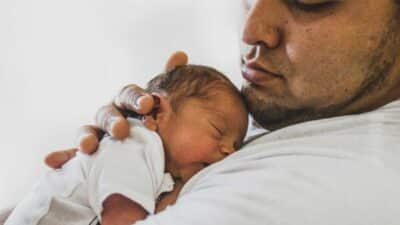Hormone and fertility tests
What does a fertility test say?
Fertility tests can be done both by women whose desire to have children and by women who want to have clarity about their own fertility. It is a blood test that determines the hormones responsible for fertility.
Get your egg reserve determined by hormone testing
Each woman has only a limited number of eggs available. With advancing age, the contingent of fertile eggs becomes increasingly depleted. The probability of becoming pregnant therefore decreases rapidly with advancing age. [1] Young women can also reach menopause early due to various reasons, such as endometriosis endometriosis. For this reason, it is important to know about one’s fertility in time.
The anti-mullerian hormone as a measure of fertility
Information about the egg cell reserve is provided by the so-called anti-Müllerian hormone egg cell reserve, which roughly indicates how many eggs are still available in the woman’s body [2]. From this, it can be deduced how much time the woman has left to fulfill her desire to have a child. The value also allows a prognosis for the success of assisted reproduction. The AMH normal value in women is between 1 and 5ng/ml blood. From the age of 30 onwards, the concentration of AMH in the blood continuously decreases. Values below 1 indicate that ovarian function is impaired.
The Ovarscore test
A related test is the Ovarscore test, which is designed to show a woman how many fertile years she has left. Using an ultrasound exam, your doctor will assess your ovarian reserve. However, your doctor will only see the follicles that are available in the current cycle. A long-term prognosis for a woman’s fertility is not possible with this test.
How does a fertility test work?
In most cases, the fertility test is performed in the course of a wanted pregnancy. If the longed-for baby luck does not materialize after six to twelve months, it is advisable to consult a gynecologist or a fertility center. First, a check-up or anamnesis is first carried out. The doctor will ask you about the following points:
- Physical condition
- Regularity of the cycle
- Chronic diseases and temporary infections
- Attempt period
- Previous pregnancies
The fertility test for women is composed of a blood test and ultrasound scans. While the ultrasound images check the quantity of follicles, the blood test mainly deals with hormones. An additional distinction is made between the AMH basic check egg reserve and a comprehensive fertility test.
Which hormones are examined in a fertility test?
While the AMH Basis Check focuses only on the anti-Müllerian hormone, the fertility test orders a complete analysis of the following hormones:
- TSH: Allows conclusions to be drawn about thyroid function. Hypothyroidism or hyperthyroidism can affect the female cycle and hinder conception. [3]
- FSH: A low FSH level is an indicator of impaired fertility. Since FSH promotes maturation and development of the egg, irregularities can affect fertility. [4]
- Estradiol (E2): estradiol is produced in the ovaries and is related to FSH. The two hormones condition ovarian function. [5]
- LH: This hormone is responsible for ovulation and menstrual cycle. If the levels are outside the normal range, egg maturation may fail. [6]
- Testosterone: In polycystic ovary syndrome — PCOS short for — testosterone levels can get out of whack and affect the cycle. [7]
- Prolactin: If the level is not in the normal range, cycle disturbances can occur. During lactation, prolactin contributes to the production of milk and can suppress ovulation. [8]
Can I do a hormone test at home?
Meanwhile, a fertility test for women can also be purchased at the pharmacy or drugstore. The test can be performed at home and provides quick results. However, it cannot be used to determine the fertile cycles: understand your own cycle, nor the quantity of eggs. The self-tests only provide information on whether ovulation occurs and when the woman has her fertile days ovulation calculator.
Home fertility test with laboratory examination
Meanwhile, there are also hormone tests on the market that can be done at home and then sent to the laboratory for evaluation. This will give you a detailed fertility profile, information about your egg reserve and an assessment of your fertility according to your age.
When should a fertility test be performed?
Fertility or hormone testing is usually the first step when couples fail to conceive, despite unprotected intercourse. They can also be used when women want to have their ovarian reserve checked in order to decide on social freezing if necessary. The fertility test provides relatively reliable results on how many fertilizable eggs are present in the body and approximately how much time remains until menopause. In addition, hormonal disorders such as PCO syndrome can be diagnosed. The determination of thyroid levels can help to find the causes of an unfulfilled child wish.

What does a fertility test for women cost?
If you visit a doctor in the course of an unfulfilled child wish, he or she can perform a hormone test or order one in the course of fertility treatment. In this case, the fertility test is free of charge and covered by your health insurance. The cost of ovulation tests to determine fertile days is about 30 euros per month. A detailed hormone test including laboratory evaluation costs about 120 to 150 euros.
Is there also a fertility test for men?
An unfulfilled child wish can have many causes, which can just as easily lie with the man. Men can have limited fertility if the sperm count is low or their motility is restricted. In principle, men are capable of fathering children into old age. Nevertheless, sperm count may decrease with increasing age. It is also possible that the sperm oxidize or the ability to fertilize decreases for this reason.
Commonly, a spermiogram is performed for the man at the urologist’s office. A fresh semen sample is given to a laboratory in order to be examined for quantity, quality, performance, agility and shape of the sperm. There is also a limited version of the fertility test for men that can be performed at home. [9]
About Fertilly
At Fertilly, we have made it our mission to accompany couples (homosexual and heterosexual) and singles on the way to fulfilling their child wish. In doing so, it is important to us to create transparency in the area of fertility services, to provide information and knowledge on the topics of pregnancy and fertility and to help you to find the most suitable Fertility Center. Through cooperation with first-class Fertility Centres and clinics in Europe, enquiries about Fertilly are given preferential treatment. This means that our patients avoid the usually long waiting times and get appointments more quickly.
If you would like more information about Fertility Centers, success rates and prices, please contact us using this questionnaire. We will advise you free of charge and without any obligation.
-
Answer the first questions in the online form in order to book an appointment. This way we can better address your needs during the conversation.
-
We will find the best contact person for your individual needs. Schedule 20 minutes for the consultation.
-
We will introduce you to the right fertility clinic from our network, make an appointment and accompany you until your wish for a child is fulfilled.










